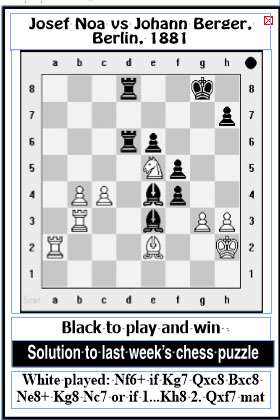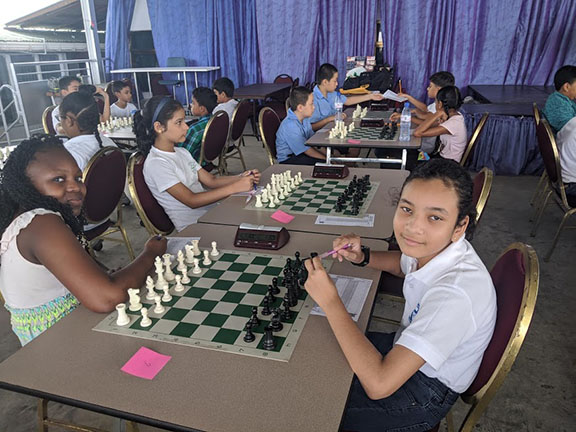 The qualifier for entry into the 2020 National Chess Championship which was scheduled to begin yesterday has been postponed to next Saturday, February 1, at the National Stadium, Providence. The qualifier is a single round-robin competition over two successive weekends, which will see nine players proceeding to the National Championship. They will be joined by last year’s national chess champion who is not required to play in the qualifier.
The qualifier for entry into the 2020 National Chess Championship which was scheduled to begin yesterday has been postponed to next Saturday, February 1, at the National Stadium, Providence. The qualifier is a single round-robin competition over two successive weekends, which will see nine players proceeding to the National Championship. They will be joined by last year’s national chess champion who is not required to play in the qualifier.
We are already aware of the players likely to go forward into the national championship based on their FIDE ratings and recent tournament successes. However, I share the view with some that the national championship itself should be a tournament as impartial as possible. This means it should be a double round robin instead of a single one, as it is at present. With a double round robin, each participant has the opportunity to play both the black and the white pieces. This would guarantee fairness and ensure the championship is evenly matched.
Those who harbour aspirations of becoming a Guyanese national chess champion should cover every pothole which is likely to tarnish the championship’s esteem. Let us consider this example. In a nine-round competition, some participants will play the black pieces five times while some will play the white pieces five times. As everyone knows, the person who plays the white pieces has the first move, regulates the game and possesses the advantage. Naturally, the person playing the black pieces is at a disadvantage. Sometimes a participant engages a strong player with the black pieces. Naturally that person will lose if his/her opponent is a champion, a former champion or an especially strong player. It is with such a scenario in mind that the column is proposing that an equal number of blacks and whites are shared in important competitions such as the national championship.
In 2007, when I headed the Guyana Chess Federation (GCF), a double round-robin method for the national championship was employed. Kriskal Persaud was victorious. He demonstrated beyond a reasonable doubt he was a deserving champion which is more than I can say for champions who participated in the single round-robin championships. The fault, of course, does not lie with the champions themselves, but intrinsically, with the GCF. Unless and until the idea of creating a double round-robin championship is discussed, analyzed and eventually bears fruit, we will be subjected to wandering in the woods, frightened, lost, and searching for a path which will lead us to chess upliftment and eventual chess prosperity.
 The double round-robin system could be conducted in two separate phases or in two separate parts. At the Chess Olympiads, we are happy and content to spend approximately one full month travelling and playing tournament chess. Similarly, we can put additional effort into our local chess to make it more worthwhile.
The double round-robin system could be conducted in two separate phases or in two separate parts. At the Chess Olympiads, we are happy and content to spend approximately one full month travelling and playing tournament chess. Similarly, we can put additional effort into our local chess to make it more worthwhile.










